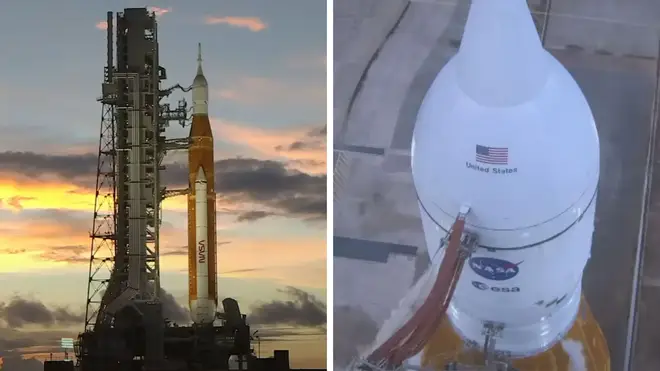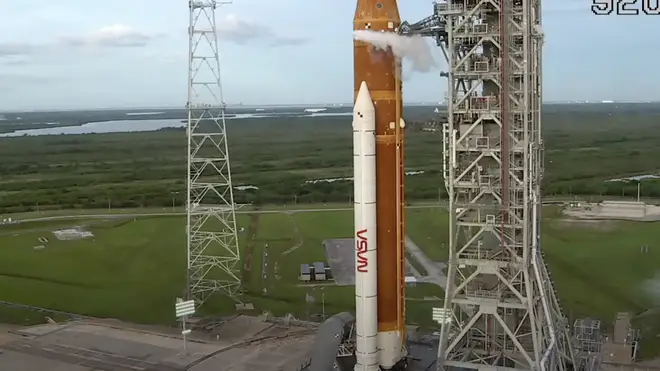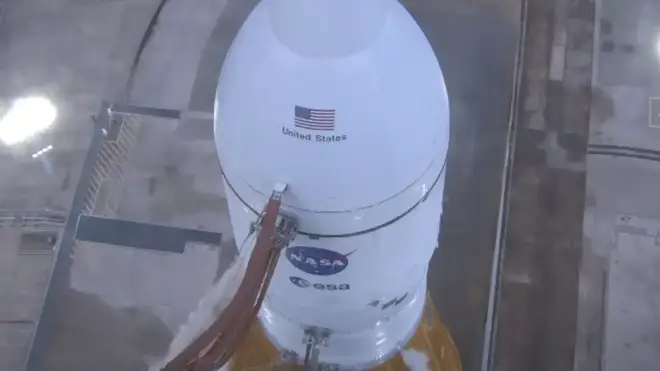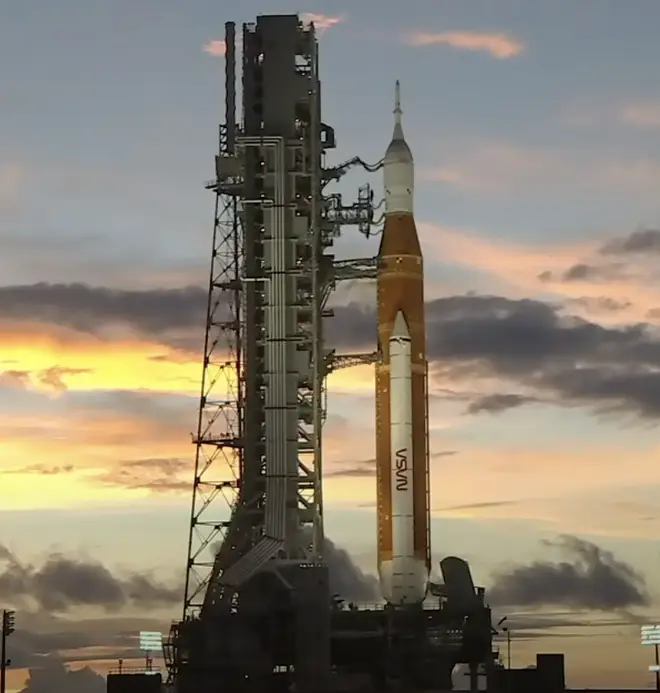
James O'Brien 10am - 1pm
29 August 2022, 13:44 | Updated: 29 August 2022, 14:45

NASA has cancelled the launch of its latest moon rocket after a hydrogen leak.
The next opportunity for the rocket to be launched will be September 2, depending on how the engine bleed develops, the space agency said.
The rocket was due to take off from the Kennedy Space Centre in Cape Canaveral, Florida, during a two-hour window after 1.33pm BST, but was called off by the launch director moments before.
Around 40 minutes prior to the planned take-off there was an "unplanned stop".

NASA explained: "The issue that came up was an engine bleed which couldn't be remedied but the rocket is currently in a stable configuration.
"It was mostly tanked but not completely tanked.
"Engineers are now working on a plan to continue gathering data about this particular engine and the bleed that didn't work out."
Engineers were working to rectify a temperature issue with one of the engines, after earlier tackling a liquid nitrogen leak during final lift-off preparations.
Similar leaks hindered NASA's countdown tests in April and June.
Read more: NASA reveals 'incredible' Jupiter views taken from world's most powerful space telescope
Read more: NASA reveals stunning new image of Cartwheel Galaxy from world's most powerful telescope

NASA administrator Bill Nelson said rocket launch delays are "just part of the space business".
Speaking on NASA's official channel, Mr Nelson said: "We don't launch until it's right, and in fact they've got a problem with the gases going on the engine bleed on one engine.
"I think it's just illustrative that this is a very complicated machine, a very complicated system, and all those things have to work, and you don't want to light the candle until it's ready to go.
"I have some personal experience in the crew that I participated in the 24th flight of the space shuttle, we scrubbed four times, and the fifth try was a flawless mission.
"We know had we launched on any one of those scrubs, it wouldn't have been a good day.
"This is just part of the space business and it's part of particularly a test flight, we are stressing and testing this rocket and a space craft in a way that you would never do it with a human crew on board, that's the purpose of a test flight."

The Artemis 1 mission will see the first launch of the new 322ft (98m) tall Space Launch System (SLS) rocket, which the agency says is the world's most powerful rocket to date.
It will take the Orion capsule, powered by the Airbus-built European Service Module (ESM), into the Moon's orbit.
The uncrewed flight marks the next chapter in putting humans back on the Moon, and is the first in NASA's Artemis programme.
The latest mission is about proving people can make longer and more sustainable trips there.
It will also assess whether some infrastructure can be built on and around the Moon, allowing humans to survive on another planetary body.
The mission duration is 42 days, 3 hours and 20 minutes, and in total it will travel 1.3 million miles.
There will be astronauts on board for subsequent missions, with the first crewed flight into space scheduled for 2024.
NASA expects the first Artemis astronauts to land on the Moon in 2025.
The UK is part of the Artemis programme, making contributions to the Lunar Gateway - a space station currently in development with the European Space Agency - working alongside the US, Europe, Canada and Japan.